Deities
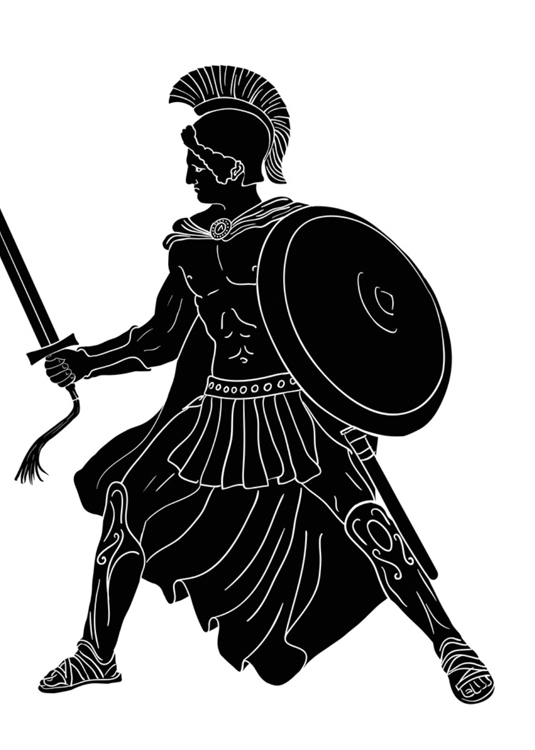 Achilles Ancient Greek · 3 myths
Achilles Ancient Greek · 3 mythsAchilles (Greek: Ἀχιλλεύς) was a Trojan war hero who was half man, half deity. Achilles is best known for his fighting skills during the Trojan war where he slayed Hector.
 Adapa Sumerian · 1 myth
Adapa Sumerian · 1 mythAdapa was a figure from Eridu that came to be known as the "wise man" after Enki provided him such wisdom.
 Aeneas Roman Paganism · 2 myths
Aeneas Roman Paganism · 2 mythsAccording to Virgil, Aeneas was the Roman half-deity who founded Rome after the Trojan War.
 Allah Islam · 1 myth
Allah Islam · 1 mythAllah is the sole supreme deity of the Islamic faith, and means 'god' in Arabic.
 Ame-no-minaka-nushi Shinto · 1 myth
Ame-no-minaka-nushi Shinto · 1 mythAme-no-minaka-nushi (Japapenese: 天之御中主神) is the first of three sexless and formless 'Kami' deities listed in the first chapter of the Kojiki texts.
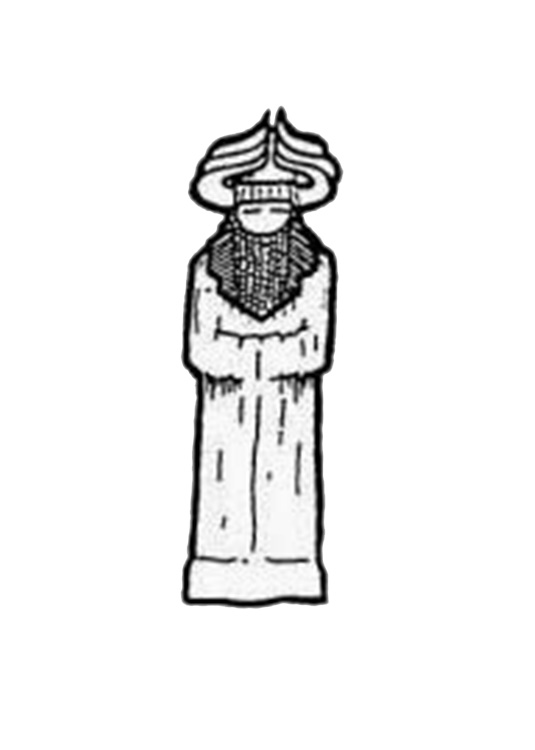 An Sumerian · 11 myths
An Sumerian · 11 mythsAn (Sumerian: 𒀭) was the supreme deity of the sky and father of the Sumerian pantheon of deities. An was commonly symbolized by the horned cap and dingir (𒀭) symbol.
 Anšar Sumerian · 1 myth
Anšar Sumerian · 1 mythAnšar, in some traditions, was the parent of the supreme sky deity named An.
 Antu Babylonian
Antu BabylonianAntu was, according to some Babylonian poems, the wife of the sky deity named Anu (An).
 Anubis Egyptian
Anubis EgyptianAnubis (Coptic: ⲁⲛⲟⲩⲡ) was an Egyptian deity often associated with funerary rituals and the underworld.
 Anzû Sumerian · 2 myths
Anzû Sumerian · 2 mythsAnzû (Sumerian: 𒀭𒅎𒂂) was a lesser divinity in Mesopotamia, commonly depicted as a lion-headed eagle that can breathe fire and water.
 Aphrodite Ancient Greek
Aphrodite Ancient GreekAphrodite (Greek Ἀφροδίτη) was said to be born from the foam in the sea, and was the goddess of beauty, reproduction, and gardens.
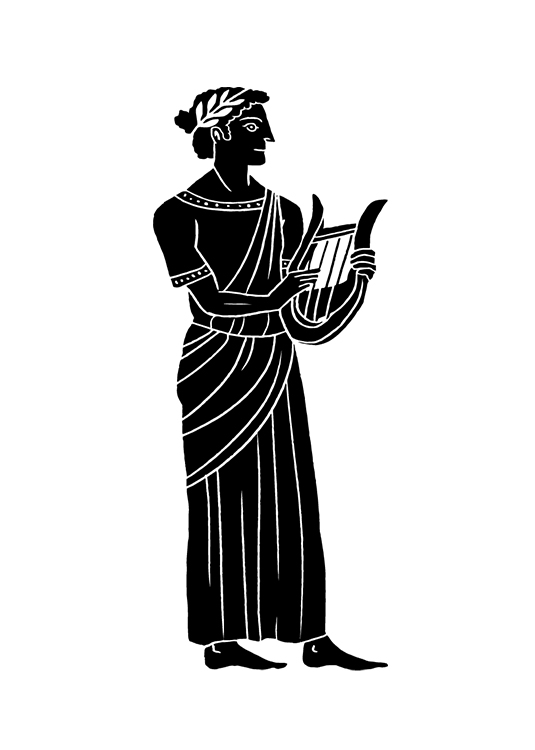 Apollo Ancient Greek · 5 myths
Apollo Ancient Greek · 5 mythsApollo (Greek: Ἀπόλλων) was the son of Zeus and one of the most important deities in ancient Greek mythology.
 Apsu Sumerian · 2 myths
Apsu Sumerian · 2 mythsIn the Babylonian tradition, Apsu (Sumerian: 𒍪 𒀊) was a primordial creature and the lover of Tiamat; and, he was killed by Ea. Most other traditions depict Apsu as water.
 Areop-Enap Nauruan · 1 myth
Areop-Enap Nauruan · 1 mythAreop-Enap was the supreme deity responsible for creation according to the spiritual beliefs of the Nauru people in Micronesia.
 Ares Ancient Greek
Ares Ancient GreekAres (Greek Ἄρης) was the Greek deity associated with war and brutality, and was one of the twelve original Olympians.
 Artemis Ancient Greek
Artemis Ancient GreekArtemis (Greek Ἄρτεμις) was the daughter of Zeus and goddess of chastity, hunting, and the moon.
 Asag Sumerian
Asag SumerianAsag was a monstrous demon in the Sumerian tradition.
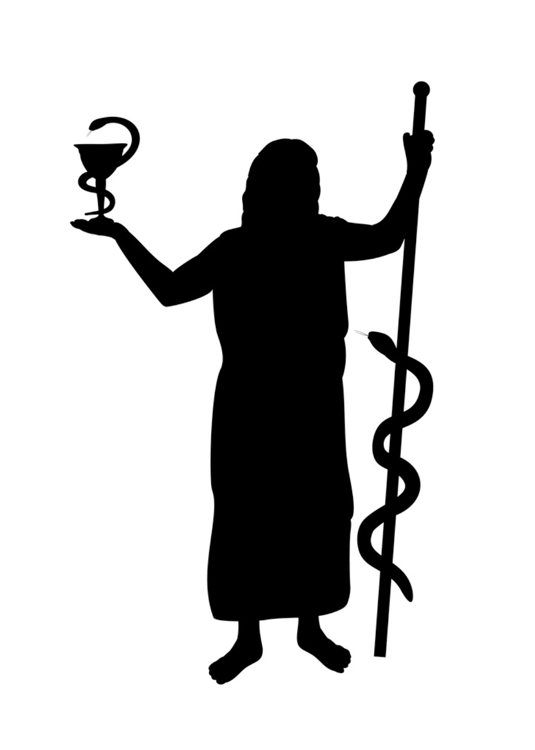 Asclepius Ancient Greek · 1 myth
Asclepius Ancient Greek · 1 mythAsclepius (Greek: Ἀσκληπιός) was a Greek deity associated with medicine and healing. His father was said to be Apollo.
 Aššur Assyrian · 1 myth
Aššur Assyrian · 1 mythAššur (Sumerian: 𒀭𒊹) was the chief deity of Assyrian cultural traditions, wherein the capital was named after him. He is typically symbolized by a winged sun disc.
 Athena Ancient Greek · 4 myths
Athena Ancient Greek · 4 mythsAthena (Greek: Αθηνά) was a Greek deity associated with war and strategy, often assisting humans.
 Atiya Kuru Shidaba Sanamahism · 1 myth
Atiya Kuru Shidaba Sanamahism · 1 mythAtiya Kuru Shidaba is a supreme creator deity in the Sanamahi religion of northeastern India.
 Atra-Hasīs Babylonian · 1 myth
Atra-Hasīs Babylonian · 1 mythAtra-Hasīs ("extra wise") was a mortal human depicted in Babylonian and Akkadian stories related to creation and the great flood in the "Epic of Atra-Hasīs" myth.
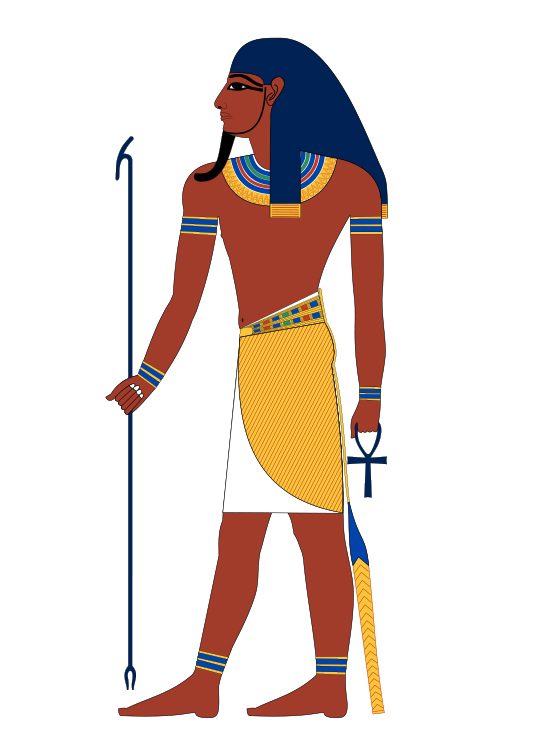 Atum Egyptian · 4 myths
Atum Egyptian · 4 mythsAtum is one of the oldest Egyptian deities in the world and was worshiped heavily in Heliopolis. He gave birth to the other primary Egyptian deities (the Ennead).
 Âu Cơ Kinh · 1 myth
Âu Cơ Kinh · 1 mythÂu Cơ (Vietnamese: 嫗姬) was an immortal mountain fairy in Vietnamese folk religion. She was said to have played an important role in birthing the first Vietnamese people.
 Awonawilona Zuni · 1 myth
Awonawilona Zuni · 1 mythAwonawilona was the supreme deity associated with a creation narrative in the Zuni belief system.
 Baal Canaanite
Baal CanaaniteWe don't have all the details about this deity, but we know they were important.
 Baldur Norse Paganism · 1 myth
Baldur Norse Paganism · 1 mythBaldur was an important Norse deity who died during the culture's creation myth.
 Bau Sumerian
Bau SumerianBau was said to be the consort of Ningirsu and daughter of An in Sumerian traditions.
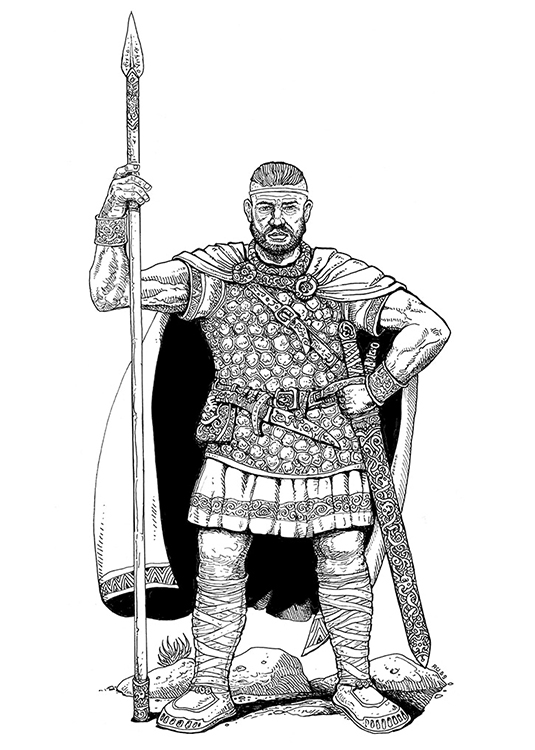 Beowulf Norse Paganism · 1 myth
Beowulf Norse Paganism · 1 mythWhile Beowulf was not a formal deity in the Norse pantheon, he was a mythical hero who had unusual skills and abilities.
 Bes Egyptian
Bes EgyptianBes was an Egyptian deity associated with recreation. He also appeared in Mesopotamian art and some myths.
 Buga Tungus · 1 myth
Buga Tungus · 1 mythBuga was the main creation deity according to traditions among the Tungus people in Siberia. He was opposed by a being named Buninka.
 Bull of Heaven Sumerian
Bull of Heaven SumerianThe "Bull of Heaven" was a Sumerian beast oftentimes depicted in cylinder seals. In some traditions, the bull was killed by Gilgamesh.
 Buninka Tungus · 1 myth
Buninka Tungus · 1 mythIn Tungus culture, Buninka was the being who opposed the creator deity named Buga when the Earth came into existence.
 Cronus Ancient Greek · 2 myths
Cronus Ancient Greek · 2 mythsCronus (Greek: Κρόνος) was the leader of the Titans, the first generation of Greek deities. He gave birth to Zeus, Hades, and others. He was also associated with the harvest.
 Dangun Korean Shamanism · 1 myth
Dangun Korean Shamanism · 1 mythDangun (Hangul: 단군) was the founder of Korea’s first kingdom, Gojoseon (2333-108 BCE), according to Korean folk religion. He was later deified.
 Dâyuni'sï Cherokee · 1 myth
Dâyuni'sï Cherokee · 1 mythDâyuni'sï was a water beetle involved with creation in some Cherokee traditions.
 Demeter Ancient Greek
Demeter Ancient GreekDemeter (Greek Δημήτηρ) was the ancient Greek goddess of grain, seasons, and the harvest, among other roles.
 Dionysus Ancient Greek
Dionysus Ancient GreekDionysus (Greek Διόνυσος) was the Greek deity associated with wine-making, grapes, and ecstasy.
 Dumuzi Sumerian · 2 myths
Dumuzi Sumerian · 2 mythsDumuzi was the primary consort of Inanna according to the Sumerian tradition.
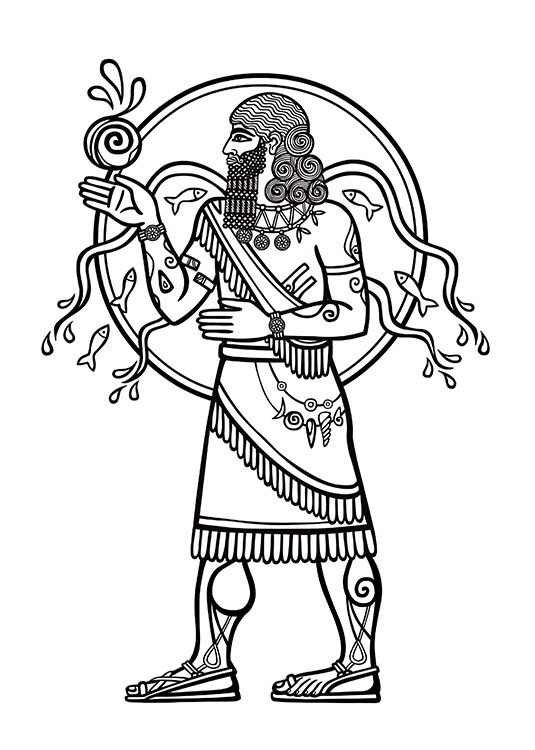 Enki Sumerian · 7 myths
Enki Sumerian · 7 mythsEnki is the son of An (Anu), and a member of the Anunnaki, the main seven deities of the Sumerian pantheon. Enki is one of the most powerful figures within Sumerian mythology.
 Enkidu Sumerian · 3 myths
Enkidu Sumerian · 3 mythsEnkidu (Sumerian: 𒂗𒆠𒆕) was a semi-divine figure mentioned in Sumerian literature as the friend of Gilgameš. Older literature portrays him as a wild man created by Aruru.
 Enlil Sumerian · 11 myths
Enlil Sumerian · 11 mythsEnlil (Sumerian: 𒀭𒂗𒆤) was a member of the Anunnaki, the core seven Sumerian deities.
 Ereškigal Sumerian · 2 myths
Ereškigal Sumerian · 2 mythsEreškigal was a Sumerian deity associated with death and the underworld.
 Esege Malan Mongolian Shamanism · 1 myth
Esege Malan Mongolian Shamanism · 1 mythEsege Malan was a supreme creator deity according to the beliefs of some cultures related to Mongolian Shamanism.
 Freya Norse Paganism · 1 myth
Freya Norse Paganism · 1 mythFreya was an important Norse deity whose twin brother was Freyr.
 Freyr Norse Paganism · 1 myth
Freyr Norse Paganism · 1 mythFreyr was an old Norse deity whose twin sister was Freya.
 Gaia Ancient Greek · 1 myth
Gaia Ancient Greek · 1 mythGaia (Ancient Greek: Γαια) was one of the oldest Greek deities and a personification of the earth. Together with Uranus (sky), they gave birth to the Titans.
 Geb Egyptian · 2 myths
Geb Egyptian · 2 mythsWe don't have all the details about this deity, but we know they were important.
 Gichi-manidoo Ojibwe (Chippewa) · 1 myth
Gichi-manidoo Ojibwe (Chippewa) · 1 mythGichi-manidoo ("Great Mystery") was a supreme deity associated with creation in some Anishinaabe and Ojibwe (Chippewa) cultural traditions.
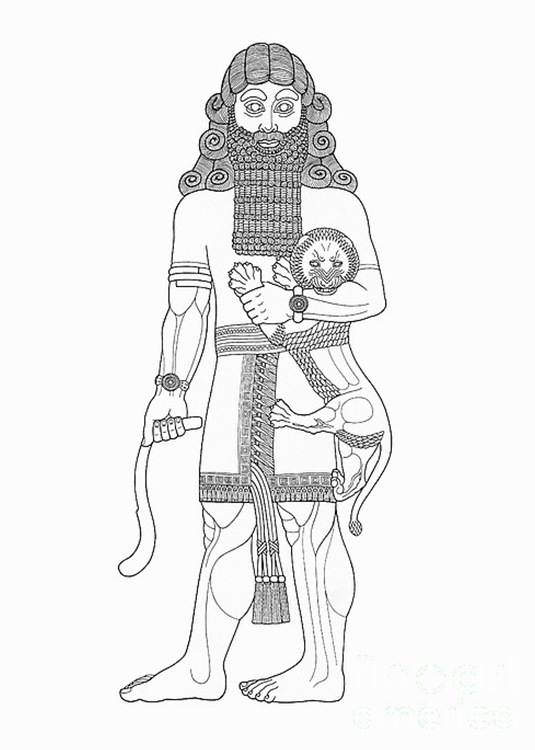 Gilgameš Sumerian · 4 myths
Gilgameš Sumerian · 4 mythsGilgameš (Sumerian: 𒄑𒉈𒂵𒈩) was the mythical king of a city named Uruk and was well-known for his epic journey to find immortality.
 God Christian · 3 myths
God Christian · 3 mythsGod is the sole deity of the Christian faith, as well as its denominations. This deity is referenced heavily in the Holy Bible and artistically depicted as an older-aged male.
 Grendel Norse Paganism · 1 myth
Grendel Norse Paganism · 1 mythGrendel was not a formal Norse deity, but a monster in the Anglo-Saxon epic named Beowulf. Grendel was large, monstrous looking, and murderous. He dismembered the men he ate.
 Hades Ancient Greek · 1 myth
Hades Ancient Greek · 1 mythHades (Greek Ἅιδης) was the Greek deity associated with the underworld. Hades was also the brother of Zeus and Poseidon and a member of the core pantheon of deities.
 Hathor Egyptian · 2 myths
Hathor Egyptian · 2 mythsHathor (transliterated Archaic Egyptian: ḥwt-ḥr) was an Egyptian deity who may have been attested since 3100 BCE. Her roles and depictions have changed over Egyptian history.
 Hephaestus Ancient Greek
Hephaestus Ancient GreekHephaestus (Greek Ἥφαιστος) is the Greek deity associated with metallurgy, craft, and fire. He was banished by his mother (Hera) at birth because of his appearance.
 Hera Ancient Greek · 1 myth
Hera Ancient Greek · 1 mythHera (Greek Ἥρα) is the ancient Greek goddess of family and marriage, and the wife-sister of Zeus.
 Heracles Ancient Greek · 1 myth
Heracles Ancient Greek · 1 mythHeracles was an ancient Greek half-deity known for being a brutal warrior. He is said to be the equivalent of the Roman Hercules.
 Hercules Roman Paganism · 1 myth
Hercules Roman Paganism · 1 mythHercules was a Roman half-deity known for being strong. He was likely adapted from the Greek Heracles.
 Hermes Ancient Greek
Hermes Ancient GreekHermes (Greek Ἑρμῆς) was a Greek deity associated with being a messenger between gods and mortals. He was known for moving swiftly.
 Hine-nui-te-pō Maori · 1 myth
Hine-nui-te-pō Maori · 1 mythHine-nui-te-pō was a Māori deity associated with death and the night in some traditions.
 Horus Egyptian · 2 myths
Horus Egyptian · 2 mythsHorus (falcon symbol) was the son of Osiris and one of the most important Egyptian deities. He was a member of the great Ennead, the oldest deities in Egyptian history.
 Hwanin Korean Shamanism · 1 myth
Hwanin Korean Shamanism · 1 mythHwanin (Hangul: 환인) was a supreme Korean folk religion deity associated with the sky. Hwanin has many alternative name forms that relate to the sky as an abode.
 Hwanung Korean Shamanism · 1 myth
Hwanung Korean Shamanism · 1 mythHwanung (Hangul: 환웅) was a Korean folk deity associated with being the son of Hwanin; and, he played an important role in creating man.
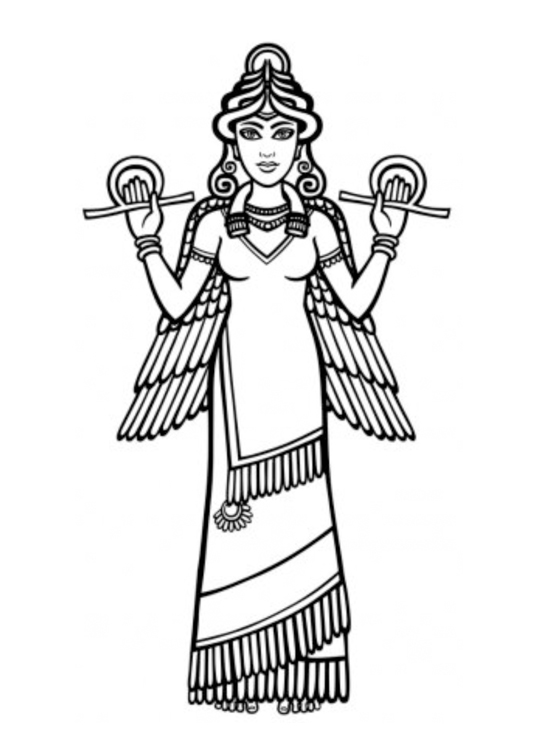 Inanna Sumerian · 5 myths
Inanna Sumerian · 5 mythsInanna (Sumerian: 𒀭𒈹) was one of the oldest deities in the Sumerian pantheon. She was later adapted into the Akkadian pantheon of deities under the name Ištar.
 Ishtar Akkadian · 1 myth
Ishtar Akkadian · 1 mythIštar was a Mesopotamian deity worshiped in Akkad, Babylon, and Assyria. She was often associated with war, sex, and desire.
 Isis Egyptian · 1 myth
Isis Egyptian · 1 mythWe don't have all the details about this deity, but we know they were important.
 Jesus Christ Christian · 1 myth
Jesus Christ Christian · 1 mythJesus Christ was a Jewish religious leader and believed to be the son of the Christian deity named 'God.'
 Käng San · 1 myth
Käng San · 1 mythKäng was a supreme deity associated with creation in some traditions within the San religion of southern African peoples.
 Kamui Ainu · 1 myth
Kamui Ainu · 1 mythKamui was a supreme deity associated with creation in the Ainu belief system of northern Japan.
 Kāne Hawaiian · 1 myth
Kāne Hawaiian · 1 mythKāne was a supreme deity associated with creation in some oral traditions of Hawaiian religion.
 Khnum Egyptian
Khnum EgyptianKhnum (Ancient Egyptian: 𓎸𓅱𓀭 ) was an Egyptian deity associated with creation and was oftentimes depicted with the head of a ram.
 Ki Sumerian
Ki SumerianKi (Sumerian: 𒆠) was known as the earth goddess and one of the original three deities of the Sumerian pantheon.
 Kišar Sumerian · 1 myth
Kišar Sumerian · 1 mythKišar was said to be the parent of the supreme sky deity named An, according to some traditions.
 Kūkaʻilimoku Hawaiian · 1 myth
Kūkaʻilimoku Hawaiian · 1 mythKūkaʻilimoku was one of the four primary deities in Hawaiian religion, according to some native traditions.
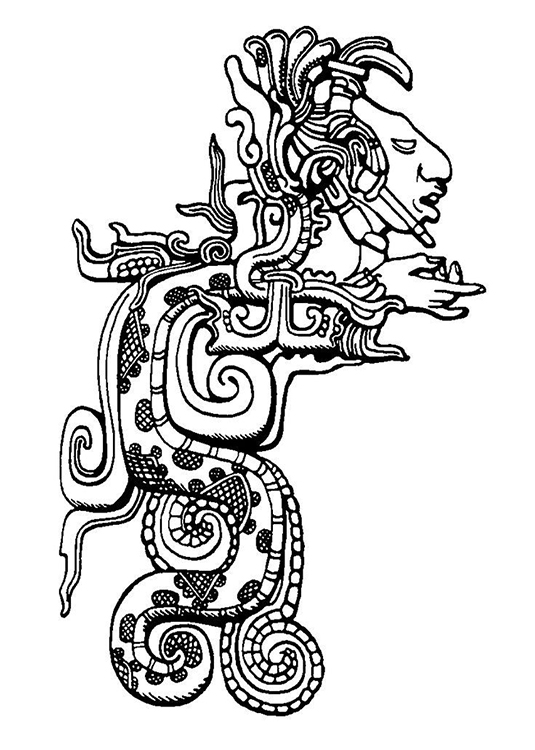 Kukulkan Mayan · 1 myth
Kukulkan Mayan · 1 mythKukulkan was one of the main deities in Mayan religion and traditionally depicted as a feathered serpent. A pyramid at Chichen Itza, Mexico, is devoted to Kukulkan.
 Lạc Long Quân Kinh · 1 myth
Lạc Long Quân Kinh · 1 mythLạc Long Quân (Vietnamese: 貉龍君) was a mythical Vietnamese king who was said to have fathered the first 100 Vietnamese people with Âu Cơ, an immortal fairy.
 Lahamu Akkadian · 1 myth
Lahamu Akkadian · 1 mythLahamu was said to be the sister of Lahmu in Akkadian traditions. Also, she was associated with creation and being the parent of Anšar and Kišar.
 Lahmu Akkadian · 1 myth
Lahmu Akkadian · 1 mythLahmu was said to be a primordial being who was one of the earliest deities in Akkadian and Babylonian traditions.
 Loki Norse Paganism · 1 myth
Loki Norse Paganism · 1 mythLoki was a Norse deity involved in the account of the world's creation.
 Lono Hawaiian · 1 myth
Lono Hawaiian · 1 mythLono was one of the original four Hawaiian deities according to some traditional religious customs. She was associated with fertility in some oral chant traditions.
 Ma Anatolian
Ma AnatolianMa was an Anatolian deity with cult temples in Cappadocia and Pontus of central and northeast Asia Minor. She may also be represented in Hittite, Greek, and other religions.
 Mahavira Jainism · 1 myth
Mahavira Jainism · 1 mythMahavira was the last of the twenty-four original Jina in Jainism traditions.
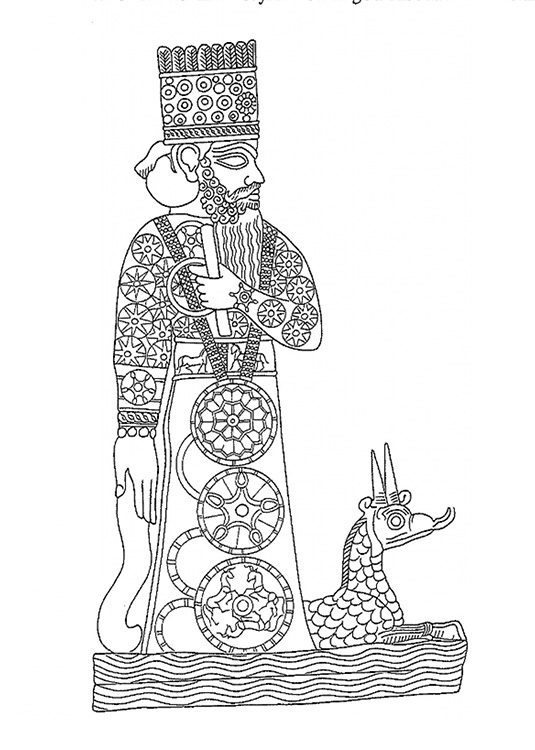 Marduk Babylonian · 3 myths
Marduk Babylonian · 3 mythsMarduk (Akkadian: 𒀭𒀫𒌓) was a patron deity chiefly associated with ancient Babylon.
 Minoan 'Mother Goddess' Proto-Deity Minoan
Minoan 'Mother Goddess' Proto-Deity MinoanThe Minoan 'Mother Goddess' Proto-Deity is an artistic motif found in Bronze Age ruins of the Minoan culture in modern-day Crete, Greece.
 Minoan Female Animal Tamer Proto-Deity Minoan
Minoan Female Animal Tamer Proto-Deity MinoanThe Minoan Female Animal Tamer Proto-Deity is an artistic motif found in Bronze Age ruins of the Minoan culture in modern-day Crete, Greece.
 Minoan Male Animal Tamer Proto-Deity Minoan
Minoan Male Animal Tamer Proto-Deity MinoanThe Minoan Animal Tamer Proto-Deity is an artistic motif found in Bronze Age ruins of the Minoan culture in modern-day Crete, Greece.
 Minoan Snake Proto-Deity Minoan
Minoan Snake Proto-Deity MinoanThe Minoan Snake Proto-Deity is an artistic motif found in Bronze Age ruins of the Minoan culture in modern-day Crete, Greece.
 Minoan Solar Proto-Deity Minoan · 1 myth
Minoan Solar Proto-Deity Minoan · 1 mythThe Minoan Solar Proto-Deity may represent the sun according to proto-myths in Linear A or Cretan Hieroglyphs. The figure may also be visible in Minoan material culture.
 Montu Egyptian · 1 myth
Montu Egyptian · 1 mythMontu was a popular deity associated with war throughout Egyptian history, most especially in Thebes.
 Nabû Babylonian
Nabû BabylonianNabu was a scribal deity and the minister of Marduk. He was often associated with wisdom, writing, and depicted as a stylus.
 Nammu Sumerian
Nammu SumerianNammu is one of the oldest deities in the Sumerian pantheon and claims the title of the "mother who gave birth to the heavens and the earth."
 Nephthys Egyptian · 2 myths
Nephthys Egyptian · 2 mythsWe don't have all the details about this deity, but we know they were important.
 Nergal Akkadian · 1 myth
Nergal Akkadian · 1 mythNergal (Sumerian: 𒀭𒄊𒀕𒃲) was a southern Mesopotamian deity associated with death and the netherworld.
 Neti Mesopotamian · 1 myth
Neti Mesopotamian · 1 mythNeti was a minor Mesopotamian deity that is depicted as the doorman of the Sumerian netherworld.
 Ninḫursaĝ Sumerian · 1 myth
Ninḫursaĝ Sumerian · 1 mythNinḫursaĝ (Sumerian: 𒀭𒊩𒌆𒉺𒂅) was a common Mesopotamian deity assumed under various names and the fertility role. In some traditions, she was the consort of Enki.
 Ninlil Sumerian
Ninlil SumerianNinlil (Sumerian: 𒀭𒊩𒌆𒆤) was a second generation Sumerian deity who is said to be the wife of Enlil. She was associated with being an air goddess.
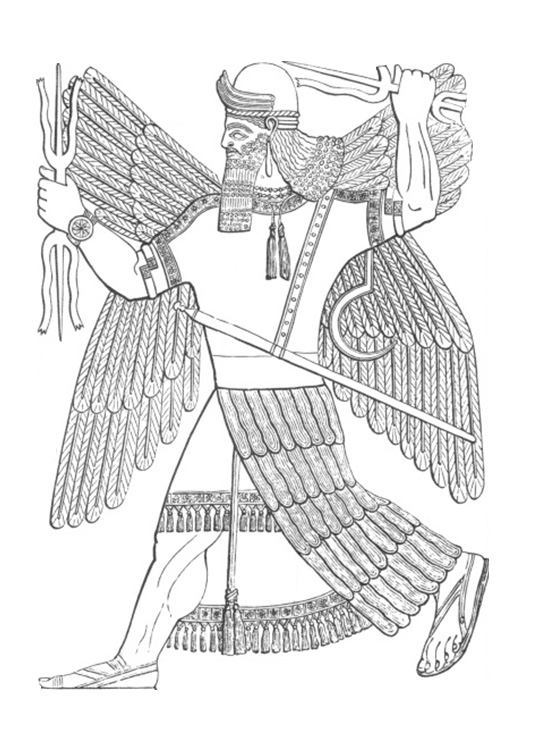 Ninurta Sumerian · 3 myths
Ninurta Sumerian · 3 mythsNinurta (Sumerian: 𒀭𒊩𒌆𒅁) was a major Sumerian deity associated with agriculture and harvest. In the Assyrian period, he was more closely associated with war and fighting.
 Nisroch Assyrian
Nisroch AssyrianNisroch is an Assyrian demon depicted as an eagle-headed figure. This deity is attested in biblical accounts like the Book of Kings.
 Nusku Assyrian
Nusku AssyrianNusku was a minister to Enlil and associated with fire and light. He was oftentimes depicted with as a lamp.
 Nut Egyptian · 2 myths
Nut Egyptian · 2 mythsNut (Egyptian nwt) was an Egyptian deity associated with the sky. She was a member of the great Ennead, a core group of Egyptian deities.





